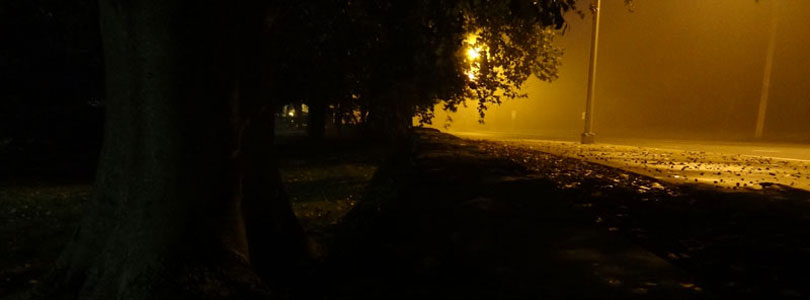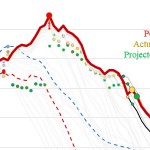Coming Out of the COVID Shadows
We hear often about the need to “bring people out of the shadows,” but our society and our politics have constructed vast rhetorical canopies in order to create shadows and make them more impenetrable.
An antagonist of mine on Twitter recently insisted that the high rate of COVID-19 infection among Hispanics in Rhode Island is directly connected with the high rate of death in nursing homes because the urban immigrants work the low-paying jobs in those facilities. He likely makes an important point, there, but our current political environment makes it almost impossible to explore.
This is so for a number of reasons, but two come immediately to mind. First, we handle way too much of our social development through government, and it is in the interest of politicians (as a class) never to actually solve the problems that provide them their greatest leverage. This means that we’re insisting that government help solve a problem that the people in government have incentive not to solve.
Thus, the news media, which is largely aligned with the party of racial grievance, produces news stories about the need to solve inequities and the plight of illegal immigrants, but in ways that avoid questions that might spark resistance. It may truly be a fact that our society’s reliance on the labor of illegal immigrants who have high-density living situations is, simply by their need and (admirable) drive to keep working, spreading disease to vulnerable people, but stating that problem directly might give opponents of illegal immigration a strong argument. So, the connection is obscured in shadow, not developed.
A second reason our political environment has trouble exploring this connection is that many of the activists who sincerely want to solve the problem want even more for their preferred solution to be implemented. For them, there must be a government fix, and it must involve the direct transfer of wealth (through their organizations and by means of their preferred politicians). We can’t reduce restrictions on construction and housing so that lower-income families would have more options and be able to spread out, rather than pile on top of each other. We can’t loosen up on employment regulations so that employers and employees can make honest exchanges of labor for money and new businesses can pop up easily to compete, thus providing a more fluid job market for people to find the right balance for their needs, talents, and interests.
Such an approach may or may not be correct, and it certainly comes with its own set of challenges and complications, but it is absolutely unthinkable if the primary goal is to manage our society at the direction of supposed experts and in conformity with progressive, socialist ideals.
The lesson of the moment is that the experts really aren’t very good at managing our society. Even putting aside the ridiculous epidemiological models that led us to leap into an economic depression, we need only look at these issues of demographics and nursing homes.
Three related articles are worth reading in their entirety, but consider the following quotations from them.
In the Boston Globe, Lynn Arditi describes how COVID-19 snuck up on one Rhode Island nursing home:
… one thing that experts say is key to preventing the spread of the coronavirus in nursing homes — testing all residents and staff — did not begin at Bannister until the day after the first employee diagnosed with COVID-19 had died. …
In late March, none of Bannister’s residents were showing any COVID-like symptoms. And since state health officials were advising testing only for people who had telltale symptoms, nobody at the nursing home had been tested. …
The Health Department’s guidance was based on the state’s effort to allocate scarce testing supplies and prioritize patients who were sick, as well as an evolving understanding of how the virus is transmitted, Wendelken said.
Arditi refers to one employee of this nursing home who chose to deal with a sore throat with lozenges, soothing spray, and “some leftover prescription antibiotics. She didn’t want to go to the doctor because she worried she might get exposed to the coronavirus.” A similar anecdote appears in Edward Fitzpatrick’s Boston Globe story about a family of illegal immigrants in Central Falls who all contracted the disease:
As her symptoms grew worse, the woman — who identified herself only as Lil — decided she would not go to the local hospital because she was alarmed by TV images of people dying in New York City hospitals.
“If I’m going to die, I’d rather die at home,” she said.
She resorted to a home remedy from her native Guatemala — a special type of tea — and eventually got a nebulizer from a local health clinic to help her breathe.
And on The Public’s Radio, Ian Donnis writes about the disproportionate number of Hispanics who have contracted the disease in Rhode Island, ending on this somber note:
Longtime political activist Dr. Pablo Rodriguez, a member of the state’s coronavirus advisory panel, credits Alexander-Scott with raising the focus on different healthcare outcomes.
But Rodriguez said the state’s perennial budget deficits limit how much money is available to make significant changes. …
The devastating economic effects of the coronavirus are pervasive, and that makes it’s even more difficult to reduce healthcare disparities among different groups of people.
A distinction should be made between the economic effects of the virus, and the economic effects of our government’s reaction to the virus. State governments and the news media went rapidly to dire warnings about COVID-19 and shut down the economy, rather than focusing on hotspots and protecting vulnerable populations.
That decision meant limited tests and limited protective equipment (not to mention financial resources) had to be spread across the entire population rather than condensed where they were most needed. It also generated a level of panic that led not just to a run on toilet paper, but also to a population afraid to go out or go to the doctor because “out there is death,” as one pundit tweeted. And now that we’ve halted productive activity and incinerated tremendous amounts of wealth, our society will have less ability to provide for people in need.
Why our political class chose this reaction is a complex question, and it will likely be asked, answered, and reevaluated in repeating cycles over the next century or more. One part of the answer, however, is clearly that our political biases pushed us toward it. Large portions of our institutional leadership, especially those who help to craft our day-to-day understanding of the world, don’t want cities and/or large populations of migrant workers to seem like a risk. At the same time, they relish the opportunity for progressive government to show what it can do. (This doesn’t even touch on the desire to make President Trump look bad at every opportunity.)
So, we get shadows that prevent us from understanding what has happened, what is happening, and what we should do. To the contrary, we desperately need clarity — first, to adjust course right away, and then, to come to grips with the reasons for our errors. And for clarity, we need to be able to discuss things as they appear to us rather than fear the aggression of the righteous mob.




